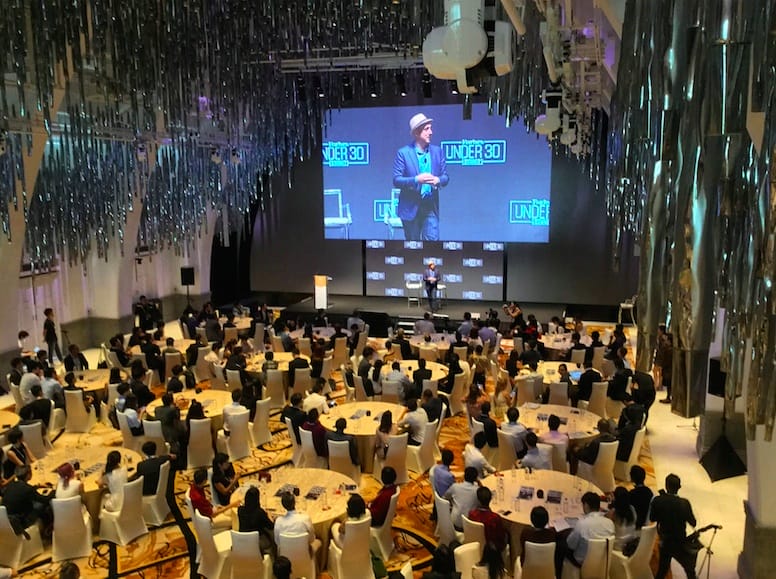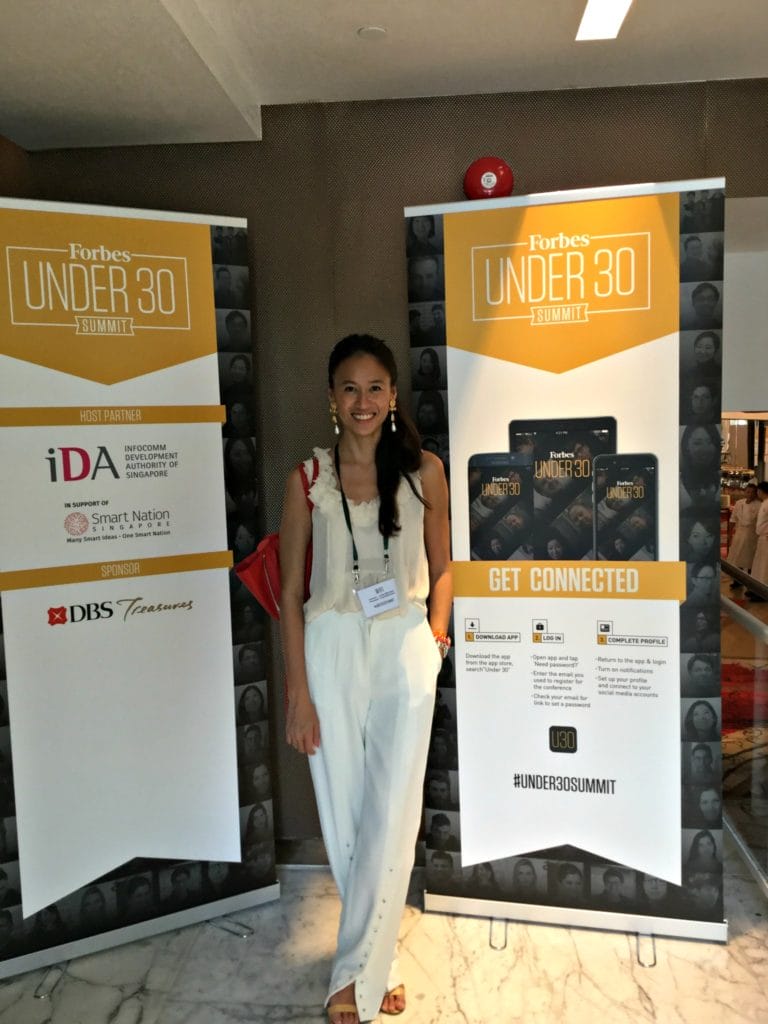
Randall Lane, Editor of Forbes magazine officially kicked things into full steam with an opening speech of all things visionary
The inaugural Forbes Under 30 Summit Asia, held on May 19, 2016 in Singapore hosted an intense one-day gathering of some of Asia’s most disruptive young talents. All under the age of 30, of varied ethnicities and accolades, and part of Forbes 30 Under 30 honoree lists, they took center stage to share their fiery and ruthless speed for success.

Mike Perlis, President and CEO of Forbes Media
My mission was personal as well as professional: to uncover from women in positions of power fresh perspectives on female empowerment and the new womanhood. The experience was liberating and I thank my lucky stars for this opportunity to see the light at the end of a different kind of tunnel. Below are three things I learnt, now engraved into my five senses as a sort of moral compass.
#1. Empowerment cannot be distributed.
My day started with Shabana Basij-Rasikh, a Women’s Educational Activist whose viewpoints were beyond insightful. We engaged in an exchange of stories of how differently yet similarly we experienced discrimination as well as empowerment, albeit as women from vastly different backgrounds. She defined empowerment as a self-initiated process that we often can’t take credit for. So many women talk about empowering women, yet so few actually do. From ‘power lunches’ to ‘power issues’, pop culture has glorified feminism to a level of saturation. The uncomfortable truth is that these buzz-words contribute little tangible improvement to the lives of most women. The term “empowerment” is bandied about so loosely that it has lost much of its practical relevance, having become instead a virtue-signaling badge of honour lacking any legitimacy of true action. The real work of empowerment starts from the grassroots building of communities and structures of opportunity and education. This takes a brave bold heart and unwavering determination. Shabana is a testament to this in her position as CoFounder of SOLA, School of Leadership Afghanistan, the only boarding school for girls in her home country.

Shabana Basij-Rasikh, Co-founder of SOLA and Education Activist from Afghanistan, shares her story of beating the odds and her mission to helping young girls get access to education
#2. Collaboration is key.
Another key learning I took away from my conversation with Shabana is the importance of collaboration and partnership among women themselves. Successful women who have worked their way up from the bottom often resent other women of more privileged backgrounds who they believe have had easier paths to similar levels of success. If women across boardrooms, classrooms and university halls could see each other as allies as opposed to competitors, women’s roles in humanity could possibly be different. The power of two is better than the power of one. This changed my mindset from one of competition to one of collaboration. I can proudly say that Shabana had since that day in Singapore on May 19, initiated my mind to slowly transition to adopt the mentality that I am not interested in competing with anyone, I hope we all make it in our own way.
#3. Your support network is as good as you are.
“They say it takes a village to raise a child; it also takes a village to raise a strong woman”, a great quote from Shabana. A woman’s support network makes a world of a difference. It is not always about the struggle, and being successful need not be a daily challenge. This learning transpired upon meeting Candice Lo, Head of Talent of Uber China, who spoke with the most nonchalant confidence about empowerment. She grew up with female mentors on a personal and professional level who fueled her ambition to pursue and succeed in all that she desired. A nice touch to our conversation was when Candice in passing told me her grandfather was the biggest feminist in her family. I was in awe of Candice’s story. Some women do have it all because for one, they choose to. It is as easy as a choice and they have framed their minds with an all-encompassing positivity. Which I have to remind myself repeatedly is a self-initiated process that is available to all who have the mental tenacity.

#Under30Summit2016



